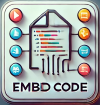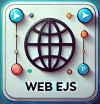Translations
| Code | Language | Translator | Run | |
|---|---|---|---|---|
 |
||||
Credits
Benny, Siti Nur, Zhiliang
Introduction:
This briefing document summarizes the key information and themes found on the Open Educational Resources / Open Source Physics @ Singapore webpage dedicated to the "SLS Hackathon by Crest Secondary and Woodlands Secondary Grammar Zombie Game." This resource highlights an English Language learning game developed by students from Crest Secondary and Woodlands Secondary as part of the 2019 SLS (Student Learning Space) Hackathon. The document aims to provide an overview of the project and its context within the broader initiatives of open educational resources and interactive learning tools in Singapore.
2. Main Themes and Important Ideas:
- Student-Led Game Development: The central theme is the creation of an educational game by secondary school students during the SLS Hackathon in 2019. This underscores the potential for student engagement and creativity in developing learning resources. The title itself, "SLS Hackathon by Crest Secondary and Woodlands Secondary Grammar Zombie Game," clearly indicates the collaborative effort of students from these two schools.
- Focus on English Language and Grammar: The game specifically targets English Language learning, with a focus on grammar. The name "Grammar Zombie Game" suggests a gamified approach to learning and reinforcing grammatical concepts, likely through interactive challenges involving zombies.
- Integration with the Student Learning Space (SLS): The project was developed within the context of the SLS Hackathon, indicating its intended use and integration within Singapore's national e-learning platform. The ability to "Embed this model in a webpage:" via an iframe code snippet explicitly facilitates its integration into SLS or other web-based learning environments.
- Open Educational Resources (OER): The resource is hosted on a website dedicated to OER and Open Source Physics in Singapore. This highlights the project's alignment with the principles of freely accessible and reusable educational materials. The presence of the Creative Commons license at the bottom of the page reinforces this: "Contents are licensed Creative Commons Attribution-Share Alike 4.0 Singapore License ."
- Interactive Learning through Games: The project exemplifies the use of games as an interactive and engaging method for learning. The numerous other game-based resources listed on the same page, spanning various subjects like Mathematics, Physics, and Chinese Language, further emphasize the website's focus on this pedagogical approach. Examples include "🎣SLS Hackathon by Admiralty Primary Shoot Multiples of 2 Game" and "🎮Catch Correct Chinese Phase Sec 1 to 4 Game HTML5."
- Hackathon as a Catalyst for Innovation: The SLS Hackathon served as a platform for students to develop innovative solutions for learning. This initiative likely encouraged problem-solving, collaboration, and the application of digital skills in an educational context.
- Credits and Collaboration: The inclusion of a "Credits" section naming "Benny, Siti Nur, Zhiliang" acknowledges the individuals involved in the development of the game, highlighting the collaborative nature of the project.
- Accessibility and Embeddability: The provision of an embed code ("<iframe width="100%" height="100%" src="https://iwant2study.org/lookangejss/00workshop/2019SLSHackathon/day2//ejss_model_zoombiegrammargameprojectgd/zoombiegrammargameprojectgd_Simulation.xhtml " frameborder="0">") demonstrates a focus on making the game easily accessible and integratable into different online platforms.
3. Key Facts:
- The project is titled "SLS Hackathon by Crest Secondary and Woodlands Secondary Grammar Zombie Game."
- It was developed as part of the SLS Hackathon 2019.
- The game focuses on English Language grammar.
- The developers are credited as Benny, Siti Nur, and Zhiliang.
- The game can be embedded in a webpage using the provided iframe code.
- The resource is hosted on an Open Educational Resources website.
- A link to a "Version" of the project is provided: "https://weelookang.blogspot.com/2019/06/sls-hackathon-by-crest-secondary-and.html".
4. Implications and Potential Use:
- This project can serve as an example of how gamification can be applied to English Language learning within the SLS environment.
- It highlights the potential for student participation in the creation of educational resources.
- The open nature of the resource allows educators to potentially use, adapt, or draw inspiration from the Grammar Zombie Game for their own teaching purposes.
- The existence of this project and other similar hackathon outcomes suggests a broader movement towards leveraging technology and student creativity to enhance learning in Singapore.
5. Further Investigation:
- Exploring the provided "Version" link (https://weelookang.blogspot.com/2019/06/sls-hackathon-by-crest-secondary-and.html) would likely provide more detailed information about the game's objectives, mechanics, and development process.
- Investigating the SLS Hackathon 2019 initiative further could provide context on the goals and scope of the event.
This briefing document provides a foundational understanding of the "SLS Hackathon by Crest Secondary and Woodlands Secondary Grammar Zombie Game" resource and its significance within the context of open education and interactive learning in Singapore
Study Guide: SLS Hackathon Grammar Zombie Game
Overview
This study guide is designed to help you review your understanding of the "SLS Hackathon by Crest Secondary and Woodlands Secondary Grammar Zombie Game" resource page. The page primarily provides an embedded interactive game and contextual information related to its creation and hosting on the Open Educational Resources / Open Source Physics @ Singapore platform.
Key Concepts
- SLS Hackathon: A programming event focused on creating resources for the Singapore Student Learning Space (SLS).
- Grammar Zombie Game: An English language game designed to teach or reinforce grammar concepts, likely featuring a zombie theme.
- Open Educational Resources (OER): Freely accessible and reusable educational materials.
- Open Source Physics (OSP): An initiative focused on creating and sharing open-source tools and resources for physics education, which in this context also hosts other subject areas.
- Student Learning Space (SLS): Singapore's national online learning platform.
- Interactive Resources: Digital learning materials that allow for user engagement and manipulation.
- Embed: To integrate content, such as a game, directly into a webpage.
- iframe: An HTML element used to display content from another source within a webpage.
Quiz
Answer the following questions in 2-3 sentences each.
- What was the main purpose of the SLS Hackathon mentioned on this page?
- Based on the title, what subject area does the "Grammar Zombie Game" likely focus on?
- What does the acronym SLS stand for in the context of this resource?
- What does the term "embed" mean in relation to the interactive game on this page?
- What type of HTML element is used to display the Grammar Zombie Game on the webpage?
- Who are credited for the creation of the SLS Hackathon Grammar Zombie Game project?
- Where can the source code or further information about the version of the game be found?
- Besides the Grammar Zombie Game, what other types of projects seem to have been created during SLS Hackathons, based on the listed examples?
- What is the licensing information provided at the bottom of the page, and what does it generally allow for?
- What is the primary platform that hosts this "SLS Hackathon by Crest Secondary and Woodlands Secondary Grammar Zombie Game"?
Answer Key
- The main purpose of the SLS Hackathon, as indicated by the examples, was to create interactive educational resources for the Singapore Student Learning Space (SLS). These resources appear to cover various subjects and utilize interactive simulations and games.
- Based on the title "Grammar Zombie Game," the game likely focuses on the subject area of English Language, specifically targeting grammar concepts. The inclusion of "grammar" in the title suggests its educational focus.
- In the context of this resource, SLS stands for the Singapore Student Learning Space, which is Singapore's national online learning platform for students and teachers. The hackathon aimed to develop resources for this platform.
- To "embed" the interactive game on the webpage means to integrate it directly into the page so that users can interact with it without having to navigate to a separate website or application. This is achieved using an iframe.
- The Grammar Zombie Game is displayed on the webpage using an <iframe> HTML element. This allows the content from the specified source URL to be shown within the boundaries of the webpage.
- The credits section explicitly names Benny, Siti Nur, and Zhiliang as the creators or contributors to the SLS Hackathon Grammar Zombie Game project.
- The source code or further information about Version 1 of the game can be found at the provided URL: https://weelookang.blogspot.com/2019/06/sls-hackathon-by-crest-secondary-and.html.
- Based on the listed examples under the accordion menu, other types of projects created during SLS Hackathons include games and interactive simulations covering subjects like mathematics (subtraction, multiples, sorting), computer science (bubble sort), physics (kinematics, heat transfer), and language (cloze passage, sentence scramblers, Chinese vocabulary).
- The content is licensed under the Creative Commons Attribution-Share Alike 4.0 Singapore License, which generally allows others to share and adapt the work, provided they give appropriate credit and license their new creations under identical terms. Commercial use of the EasyJavaScriptSimulations Library requires a separate license.
- The primary platform that hosts the "SLS Hackathon by Crest Secondary and Woodlands Secondary Grammar Zombie Game" is Open Educational Resources / Open Source Physics @ Singapore, as indicated by the website's title and breadcrumbs.
Essay Format Questions
- Discuss the potential benefits of using gamified learning resources, such as the Grammar Zombie Game, in an educational context, referencing the information provided on the resource page.
- Analyze the role of events like the SLS Hackathon in the development and dissemination of Open Educational Resources (OER) for platforms like the Singapore Student Learning Space.
- Based on the variety of projects listed on the resource page, what conclusions can you draw about the scope and focus of the SLS Hackathon initiative?
- Explain the significance of embedding interactive resources like the Grammar Zombie Game within a webpage using iframes, considering the user experience and accessibility.
- Considering the licensing information provided, discuss the implications of using and potentially adapting resources found on the Open Educational Resources / Open Source Physics @ Singapore platform for educational purposes.
Glossary of Key Terms
- Hackathon: An event where people collaborate intensively on software projects, often with a specific theme or goal.
- Interactive Resource: A digital learning tool that allows users to actively participate and receive immediate feedback.
- Embed (Web): To integrate content from one website or source into another webpage so that it appears as a part of that page.
- iframe (Inline Frame): An HTML element that creates a nested browsing context, allowing an HTML document to be embedded within another HTML document.
- Open Educational Resources (OER): Teaching, learning, and research materials that are freely available and can be reused, remixed, revised, and redistributed with few or no restrictions.
- Open Source: A philosophy and practice that promotes free access to and redistribution of the end product's design and implementation. In software, this typically includes access to the source code.
- Student Learning Space (SLS): A national online learning platform used in Singapore schools to support teaching and learning.
- Gamification: The application of game-design elements and game principles in non-game contexts.
- Simulation: A model or representation of a real-world system or process, often interactive, used for learning or analysis.
- Applet: A small application, typically written in Java or JavaScript, that runs within another application, such as a web browser.
Sample Learning Goals
[text]
For Teachers
[text]
Version:
Other Resources
[text]
Frequently Asked Questions: SLS Hackathon Grammar Zombie Game
1. What was the SLS Hackathon?
The SLS Hackathon was an event held in 2019 where students from Crest Secondary and Woodlands Secondary schools participated in creating educational games for the Singapore Student Learning Space (SLS) platform. The Grammar Zombie Game was one of the projects developed during this hackathon.
2. What is the Grammar Zombie Game?
The Grammar Zombie Game is an interactive English language game designed to help students learn and practice grammar concepts in an engaging way. The specific mechanics of the game involve a zombie theme, although the exact gameplay details aren't extensively described in this source.
3. Who created the Grammar Zombie Game?
The Grammar Zombie Game was created collaboratively by Benny, Siti Nur, and Zhiliang, likely students from Crest Secondary and Woodlands Secondary schools who participated in the SLS Hackathon.
4. What subject area does the Grammar Zombie Game focus on?
The game focuses on English Language, specifically targeting grammar skills.
5. For what educational platform is the Grammar Zombie Game designed?
The game is designed for the Singapore Student Learning Space (SLS), a national online learning platform used in Singaporean schools.
6. Is the Grammar Zombie Game accessible online?
Yes, the game can be embedded in a webpage via an iframe, with a link provided to run the simulation. This suggests it is likely accessible through web browsers.
7. Are there any listed learning goals or resources for teachers related to this game?
While the source mentions "Sample Learning Goals" and "[text]" under "For Teachers" and "Other Resources," the specific details of these resources are not provided in this excerpt. This suggests there might be supplementary materials available elsewhere (potentially through the provided version link or other channels).
8. Is the code or underlying technology of the Grammar Zombie Game available?
The inclusion of an embed code (<iframe>) and the context of the "Open Educational Resources / Open Source Physics @ Singapore" website suggest that the game is likely built using open educational resources and possibly open-source tools or principles. The mention of the "EasyJavaScriptSimulations Library" and its licensing terms at the end of the document further supports the idea of an accessible underlying technology, though commercial use of that specific library has its own licensing conditions.
- Details
- Written by Loo Kang Wee
- Parent Category: Interactive Resources
- Category: English Language
- Hits: 4507








